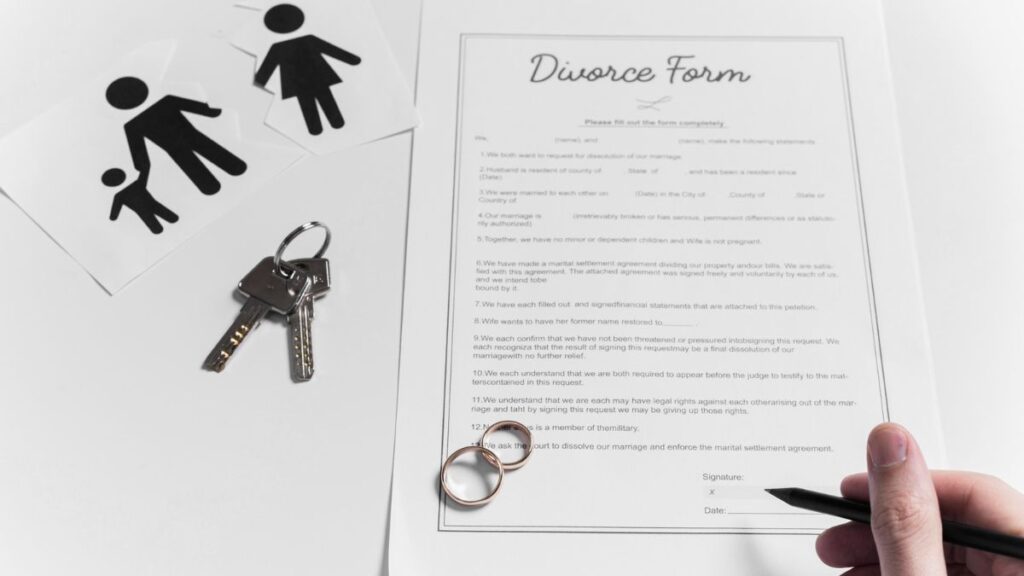Denver, the capital of Colorado, is one of the fastest-growing cities in the U.S., known for its vibrant urban lifestyle, outdoor culture, and evolving family dynamics. With a diverse population and a rising number of households, the city sees a steady stream of File for Divorce each year.
Once you file for divorce in Denver, the legal process officially begins, and the court sets deadlines and steps you must follow. Colorado is a “no-fault” divorce state, meaning you don’t need to prove wrongdoing, only that the marriage is irretrievably broken. After filing, you’ll receive a case number, and your spouse must be formally served with the divorce papers.
Next, the court requires a minimum 91-day waiting period before finalizing any divorce, even if both parties agree on everything. During this time, you and your spouse may negotiate issues such as property division, parenting plans, child support, and spousal maintenance (also known as alimony). Having an experienced Denver divorce attorney can help you navigate these negotiations and protect your rights during each step.
This article provides a guide on what to expect after filing: from service of process to temporary orders, discovery, settlement efforts, and, if necessary, trial. Understanding these stages can help you prepare and move forward with confidence.
What to Expect After Filing for Divorce
Step 1: Serving the Divorce Papers
Once you file your divorce petition in Denver, the next required step is serving your spouse. Colorado law (C.R.C.P. Rule 4) mandates that the non-filing spouse, known as the respondent, be officially served with the petition and summons. This can be done through personal service, a waiver of service, or, in rare cases, by publication.
The 91-day waiting period begins only after service is complete. Both spouses must wait this whole period before the court can finalize the divorce, even if all issues are uncontested and agreed upon.
Step 2: Financial Disclosures
Colorado law requires both parties to exchange complete financial disclosures within 42 days of service. This includes:
- Tax returns from the past three years.
- Pay stubs
- Bank statements
- Property and debt disclosures
- Retirement account details
These disclosures are essential for ensuring a fair division of marital property and debts. Failing to disclose assets or concealing financial information can result in severe legal consequences.
Step 3: Temporary Orders
Either party may request temporary orders for support, custody, or exclusive use of the marital home. These orders provide stability while the divorce is pending and can cover:
- Child custody and parenting time.
- Child support and spousal maintenance.
- Payment of joint bills.
- Use of vehicles or other property.
Temporary orders are typically decided during a court hearing unless both parties reach an agreement beforehand.
Step 4: Negotiation and Settlement
Most divorces in Denver are settled outside of court through negotiation or mediation. The court often encourages mediation to reduce conflict and avoid trials.
During this phase, couples work to reach agreements on:
- Division of marital assets and debts.
- Allocation of parenting responsibilities (C.R.S. § 14-10-124)
- Spousal maintenance
- Child support
If both spouses can agree on these issues, they can submit a separation agreement and, if children are involved, a parenting plan for court approval.
Step 6: Status Conference or Initial Hearing
The court typically schedules an Initial Status Conference (ISC) within 40 days of filing. This is an informal meeting with a family court facilitator to review the case, discuss deadlines, and determine whether mediation or a temporary orders hearing is needed.
The ISC is not a trial, but attendance is mandatory unless waived. It helps move the case forward and clarify procedural requirements.
Step 7: Trial (Only If Necessary)
If spouses cannot agree, the case proceeds to a permanent orders hearing, which functions as the divorce trial. At trial, each side presents evidence and witnesses. The judge will make final rulings on all unresolved issues, including parenting time, property division, and support.
Trials are rare in Denver County because they are costly, time-consuming, and emotionally draining. However, they are sometimes necessary in high-conflict or complex cases.
Step 8: Final Decree of Dissolution
After settlement or trial, the judge issues a decree of dissolution of marriage, which finalizes the divorce. This document outlines all terms and becomes legally binding.
Only after this decree is signed can you legally declare your marriage to be over in the state of Colorado.
Final Thoughts: What to Expect Moving Forward
File for Divorce is just the beginning of a legal process that can take several months, depending on the complexity of your situation and the level of cooperation between spouses. From serving papers and disclosing finances to negotiating terms and possibly going to trial, each step plays a vital role in determining the outcome.
While Colorado law provides a structured timeline, the emotional and practical aspects of divorce vary for every family. Understanding what comes after filing can help you make informed decisions and prepare for each stage with clarity and confidence.
Whether your File for Divorce is amicable or contested, being informed and organized can help ease the transition and enable you to focus on rebuilding your future.







